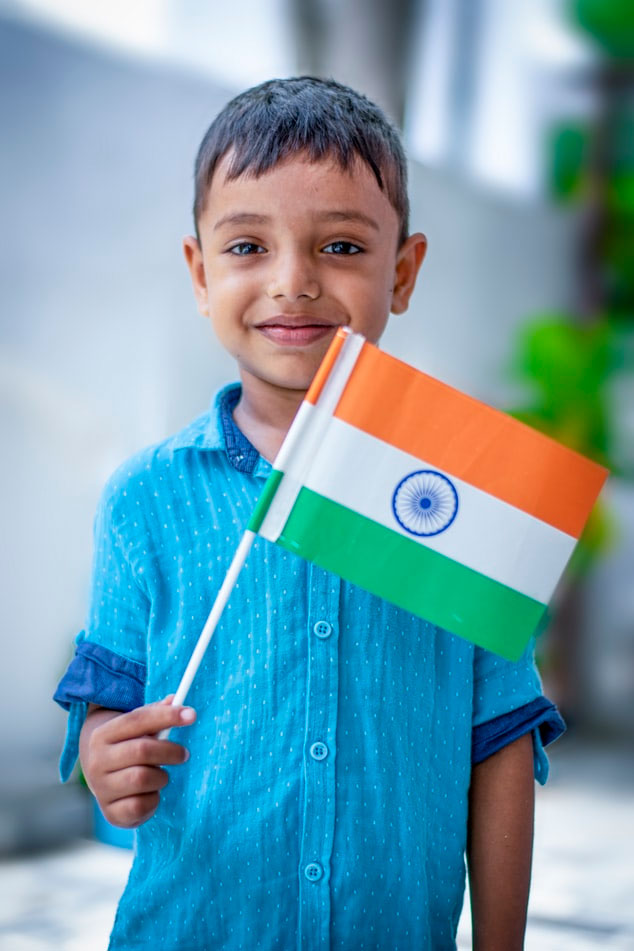India is unique. We got our freedom not by fighting war but through a movement of non-violence.
This was a movement which started as a small act in one corner of the country but spread like wild fire all across the country.
This was a progressive movement which defied a lot of concepts that we have today

- Communication
Mohandas Karamchand Gandhi was able to mobilise people from all corners of the nation to join him in fighting our colonial rulers. And imagine, this happened when there was no electronic social media which is considered as the one most effective communication method today to bring people together.
The younger generation feels that world is locked away in their palms. They feel fully equipped to face any obstacles in life and the smart phone is going to save them in any grave situation. The youth laughs at a guy who actually uses a pen and paper to jot down things.
However, this freedom movement spread across the country using conventional methods of communication including news print and word of mouth.
So maybe, we need to rethink about this supremacy of electronic social media
- Method
Nonviolence is a submissive or a passive movement. It is not about fighting but indulging in disobedience and also being prepared to face punishment for this.
Another point to be noted is the fact that not many can even fathom this thought as we are being told to rely on non- aggressive methods to achieve our goals.
Today, we are being constantly told that you have to be aggressive, ruthless and self-reliant to achieve success.
Not sure if these views resonated in those days where everyone was encouraged to be selfless, caring and sacrificial.
So maybe, we need to rethink our strategies to achieve success together as a group.
- The focus
In today’s world, one’s outlook is to live one’s life with fulfilling the individual’s needs.
““Time in my life cannot be wasted in doing voluntary jobs.
When I have extra time, it is about me, my family, and my interests”.
Other people – what are we talking about?
During freedom struggle, people felt empowered when they got involved. They did not feel that this was an aberration of their daily routine especially their quest to earn money or fortune.
They were pulled into this movement for the ‘general good’. ‘The general good’ is not something that is encouraged today,
But maybe, we need to re-think about this focus that one has in his or her life
- Benefactor
The world now is a smaller place and we are all linked by social media so I am thinking it is easier to get support for a cause but the problem actually is the cause which is not the same for everyone.
My priorities are not matching my neighbour’s.
The North Indian has no idea about the South Indian and vice versa.
Our world is a small place. It is the place where we live and we are only imbibing things that happens around us.
What about the bigger picture-the real world.
Do we care about Syrians dying?
Do we care about how the world powers are keeping the war alive to fuel their economies?
Do we care that we still cannot prevent Malaria?
Do we care about the re- emergence of polio in countries like Afghanistan and Pakistan?
Do we care about the growing need for religious and caste-based identities?
Do we care about ethnic wars, killing so many?
Do we care about the growing intolerance towards fellow countrymen in the name of colour, caste and creed?
Do we even care about the fact that we are the pawns in today’s commercial world where public is brainwashed to buy, buy and buy?
The protagonist in my life is me and everybody else in my life does not matter.
I will not compromise because my freedom cannot be curbed. it’s all about me.
But think about what happened during freedom struggle, people were part of this, not for personal gain but knew that their sacrifice is going benefit many generations after them.
Fame was not the goal.
So maybe, we need to re-think our views about how our deeds help others.
- Leadership
During our fight for freedom, there were leaders and followers. This hierarchy is not about power struggle but it helps in planning and execution of strategies.
In today’s world, we are told that all of us are leaders but who is going to carry out work.
There is nothing wrong in being at the grass root level to actually do the work.
However, people would mistake me if I support the thought that leaders are not made, it is inherent. And it is not wrong to choose the right leaders and actually follow their ideologies.
It is however our duty to choose the right leader.
Maybe, we need to think about this idea of roles and responsibilities. We need to talk more about delegation of work and dignity of labour. No job is insignificant.
There are a lot questions about how we can lead our lives.
What is the priority?
Is it really about us?
Others- do they matter at all?
What is one’s role in the society?
The answers to these questions can actually make you a different person. One who actually makes a difference in this society.
Know your duty as a citizen of this country. Know your roles and responsibilities, not just rights.

Dr. Bhuvaneshwari Rajendran
Consultant Neurologist and Clinical Neurophysiologist
Kauvery Hospital

